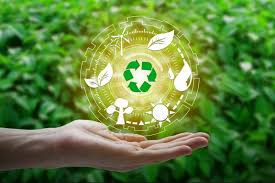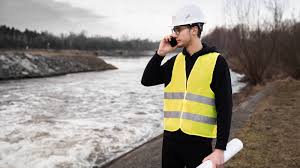Pollution control is a critical issue that affects the environment and public health in Egypt. The country has been facing various environmental challenges due to increasing levels of pollution. Implementing effective pollution control measures in Egypt is essential to mitigate the negative impact of pollution on air, water, and soil. This paper aims to explore the current state of pollution control in Egypt and propose effective strategies for addressing the issue. By examining the key factors contributing to pollution and evaluating potential solutions, this research environmental testing services seeks to provide actionable recommendations for improving air and water quality in Egypt.
Egypt faces numerous challenges when it comes to pollution control, particularly in urban centers and industrial areas. To effectively address this issue, the government and relevant authorities need to implement several measures: 1. Strengthening regulations and enforcement: Egypt should strengthen its environmental regulations and ensure strict enforcement of these laws to prevent pollution from industries, vehicles, and other sources. 2. Investment in renewable energy: The government should prioritize investment in renewable energy sources such as solar and wind power to reduce reliance on fossil fuels and mitigate air pollution. 3. Waste management and recycling: Effective waste management practices, including recycling and proper disposal of hazardous waste, can significantly reduce pollution levels in Egypt. 4. Public awareness and education: It is essential to educate the public about the impact of pollution on health and the environment, as well as promoting sustainable behaviors to minimize pollution. 5. International cooperation: Collaboration with international organizations and neighboring countries can help Egypt access expertise, resources, and best practices in pollution control. Overall, implementing effective pollution control measures in Egypt requires a multi-faceted approach that involves regulatory, technological, educational, and international cooperation initiatives. By addressing pollution at its source and promoting sustainable practices, Egypt can work towards top environmental consulting firms a cleaner and healthier environment for its citizens.
The Impact of Construction Pollution Control in Egypt

environmental management consultants The impact of construction pollution control in Egypt is significant, as the country faces environmental challenges due to rapid urban development and industrial growth. Measures to control construction pollution have been implemented to mitigate adverse effects on air and water quality, ecosystems, and public health. The adoption of sustainable building practices, use of clean energy, and proper waste management are key components of construction pollution control in Egypt. Efforts to enforce regulations and promote awareness among construction companies and workers are essential to minimize the environmental impact of construction activities. Despite these efforts, there is ongoing work needed to address the long-term impact of construction pollution and achieve sustainable development in Egypt.
Effective Strategies for Controlling Construction Pollution in Egypt

Effective strategies for controlling construction pollution in Egypt include implementing strict regulations and standards for construction activities, such as emissions limits and waste disposal guidelines. Additionally, conducting regular inspections and monitoring of construction sites can help ensure compliance with these regulations. Encouraging the use of sustainable building materials and construction techniques can also minimize pollution. Furthermore, promoting the adoption of green construction practices and technologies, such as renewable energy sources and energy-efficient design, can help reduce the environmental impact of construction activities in Egypt. Finally, raising awareness and educating stakeholders, including construction workers and project managers, about the importance of controlling pollution and the potential solutions available can help drive positive change in the construction industry.
Challenges and Solutions for Construction Pollution Control in Egypt
corporate environmental services Egypt

Challenges for construction pollution control in Egypt include limited enforcement of existing regulations, inadequate waste disposal facilities, and a lack of awareness among construction companies about the importance of pollution control. Solutions for these challenges could include more stringent enforcement of regulations, increased investment in waste disposal infrastructure, and educational campaigns to raise awareness among construction industry professionals about the need for pollution control. Additionally, the promotion of sustainable construction practices and the use of environmentally friendly materials could also help to reduce pollution from construction activities.
The Role of Government Policies in Construction Pollution Control in Egypt

The role of government policies in construction pollution control in Egypt is vital in addressing the environmental impact of construction activities. The government plays a key role in setting regulations and standards for pollution control in the construction industry. This includes enforcing laws related to air and water quality, waste management, and noise pollution. The government also has a responsibility to monitor and regulate construction projects to ensure that they comply with environmental standards. This can involve conducting environmental impact assessments, issuing permits, and imposing penalties for non-compliance. Furthermore, the government can incentivize the use of sustainable construction practices and technologies through economic and regulatory mechanisms. In addition, the government can collaborate with industry stakeholders, research institutions, and international organizations to develop and implement effective strategies for construction pollution control. This can include promoting green building practices, improving waste management infrastructure, and providing technical assistance to construction companies. Overall, government policies play a crucial role in mitigating the environmental impact of construction activities in Egypt and ensuring sustainable development in the construction sector.
Innovative Technologies for Construction Pollution Control in Egypt
Innovative technologies for construction pollution control in Egypt include the use of sustainable building materials, implementation of green construction practices, and adoption of advanced pollution control systems. One example of such technology is the use of modular green roofs, which help reduce stormwater runoff and improve air quality by capturing pollutants. Additionally, the use of low-impact construction techniques can help minimize pollution during the building process. Furthermore, advanced air and water filtration systems can be installed to mitigate the release of harmful emissions and pollutants from construction activities. These technologies play a crucial role in reducing the environmental impact of construction projects in Egypt and promoting sustainable development in the country.
The Importance of Public Awareness in Construction Pollution Control in Egypt
The construction industry in Egypt is a significant contributor to air, water, and land pollution. Public awareness about construction pollution control is crucial in mitigating the environmental impact of these activities. It is important for the public to understand the types of pollutants generated by construction, the potential health and environmental risks associated with these pollutants, and the measures that can be taken to control and minimize pollution. Raising public awareness about construction pollution control can lead to increased community involvement in enforcement and compliance with environmental regulations. It can also empower citizens to hold construction companies and government agencies accountable for their environmental impact. Additionally, educating the public about the importance of sustainable construction practices can drive demand for eco-friendly building materials and technologies, ultimately influencing the construction industry to adopt more environmentally conscious approaches. Overall, public awareness plays a crucial role in fostering a culture of environmental responsibility within the construction industry and the broader community in Egypt. By understanding the impacts of construction pollution and the potential solutions, the public can actively support and advocate for more sustainable practices in this vital sector.
Sustainable Practices for Construction Pollution Control in Egypt
Sustainable practices for construction pollution control in Egypt include the use of eco-friendly building materials, such as recycled and locally sourced materials, to reduce the environmental impact of construction. Additionally, implementing proper waste management and recycling practices on construction sites can help minimize pollution. Utilizing energy-efficient construction methods and incorporating green building technologies can also contribute to reducing pollution and promoting sustainability in the construction industry in Egypt. Moreover, adhering to environmental regulations and obtaining necessary permits for construction activities are crucial aspects of pollution control in the country.
Blogger Comment
Facebook Comment